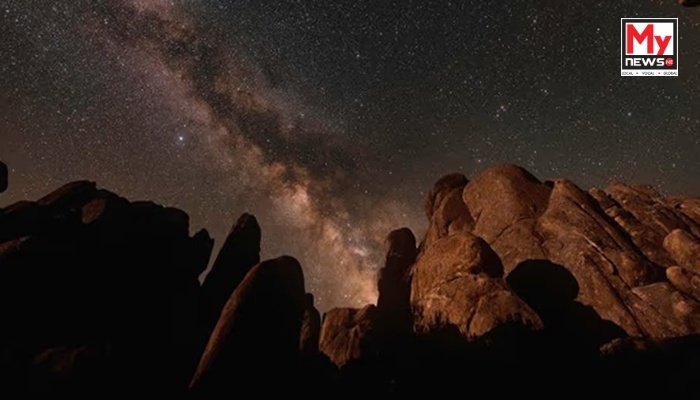Indian-Origin Scientist Leads Landmark Discovery Hinting at Possible Signs of Life on Distant Exoplanet
International: In a groundbreaking revelation that could reshape humanity’s search for extraterrestrial life, Indian-origin astrophysicist Dr. Nikku Madhusudhan has led a team of researchers to identify potential biosignatures on a distant exoplanet, K2-18b, located 120 light-years from Earth.
The findings, based on data from NASA’s James Webb Space Telescope, include the detection of dimethyl sulfide (DMS) — a molecule on Earth produced exclusively by living organisms, primarily marine algae.
Dr. Madhusudhan, a researcher at the University of Cambridge, described the discovery as “a revolutionary moment,” signaling the possibility of life-supporting chemistry beyond our solar system. “It’s the first time humanity has seen potential biosignatures on a habitable planet,” he stated, underscoring the immense implications of the findings.
K2-18b, first discovered in 2017, is classified as a sub-Neptune — a planet larger than Earth but smaller than Neptune, with no known analog in our solar system. Madhusudhan’s earlier work in 2021 introduced the idea of “Hycean planets” — ocean-covered worlds with hydrogen-rich atmospheres that could support life. The recent analysis revealed not just DMS, but also methane, carbon dioxide, and dimethyl disulfide — chemicals often associated with biological processes on Earth.
The research team used the Webb telescope’s powerful instruments to observe starlight passing through the planet’s atmosphere as it transited its host star. The presence of DMS in particular came as a shock, Madhusudhan admitted, explaining how the team initially believed the signal was an error, only to find it consistently reappearing despite multiple reanalyses.
While the discovery has excited the global scientific community, experts are approaching the findings with caution. “It’s a hint. But we cannot conclude it’s habitable yet,” warned planetary scientist Stephen Schmidt of Johns Hopkins University. Others have pointed out that K2-18b may still possess extreme conditions, such as a hot hydrogen envelope or even a molten magma ocean, that could preclude life as we know it.
Researchers agree that more data, advanced models, and future space missions will be essential to confirm or refute the biological origin of the detected molecules. However, for many, the mere possibility of having detected a molecule that may be a true biosignature is a major milestone. “I’m not screaming, ‘aliens!’” said Cornell University’s Nikole Lewis. “But I always reserve my right to scream ‘aliens!’”
Despite the excitement, there are concerns that ongoing budget constraints — particularly potential cuts to NASA’s science division — could hinder the progress of life-detection missions. Astrobiologist Joshua Krissansen-Totton warned that such setbacks could stall humanity’s most ambitious quest.
Nevertheless, the discovery places Dr. Nikku Madhusudhan at the center of one of the most important scientific pursuits of our time. His work not only brings the world one step closer to answering the age-old question — “Are we alone?” — but also highlights the critical contributions of Indian-origin scientists in the global race to explore the cosmos.

